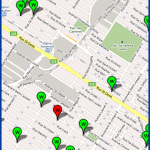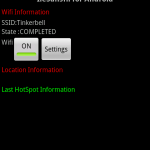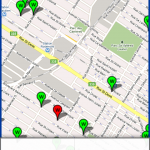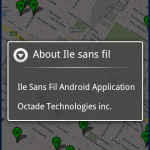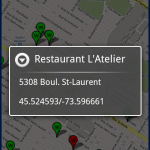When you upgrade to Ubuntu after release, or when one of your friends, family or colleagues installs it for the first time, I trust they will like many of the new features or just appreciate finding everything they need in their new Ubuntu installation. I also trust in some cases they will encounter some of the known issues which at this point (1 week before release) may not be fixed and may not make it but we need to know about. Imagine when someone mentions an issue and you can say « Yeah, I know about it. » and « I reported that bug » / « It’s in the release notes » / « We’re working on it » … « This morning’s updates fixes it » !!!
Don’t miss this opportunity !!!
Ok, this is not as exciting as getting your fingerprint reader to work or customizing window close/maximize buttons positions…
If you consider using Ubuntu 10.10 when it releases (or already do), upgrading to it, or suggesting anyone around you doing so, this would be a good time to read the Maverick Technical Overview 🙂 Making new (or existing, upgrading) Ubuntu users happier also means knowing about its issues before hand, and deciding if you stick to 10.04 LTS, wait a bit longer before upgrading, or else. How else can you help improve such knowledge ?
As many may know, most of Canonical workforce is distributed, but we often get together in sprints where we attack a specific subject. During this week at the Montreal Canonical office we’re having a special event around the upcoming Ubuntu 10.10 release. We’re literally sprinting until Friday, on a very busy week during which we’ll wrap-up all the information we have from weeks of testing, bug reporting/triaging, support issues reported by customers, escalated issues, knowledgebase solutions, and more.
Lots of fun! Specially when Boris is around 😉
For our sprint this week in the Montreal support office, my team is focusing on desktop issues within the following areas, among others:
* Networking (wifi, drivers, sharing, printing..)
* Boot / install / post-install issues (upstart, GRUB*, casper..)
* Video (multi-head, setup, legacy drivers..)
Other teams are focusing on server, cloud, and more. It’s interesting Desktop and « other » areas intersect in what most would generally call « corporate » use of Ubuntu – mass deployments, OEM issues, etc. So we’ve also learned to never underestimate even the tiniest Desktop papercuts 🙂
You can see some of the issues and bugs we consider worth knowing before hand in this Delicious bookmarks feed. If you’re interested in contributing to this list, consider using Delicious and tagging with « maverick » and « bug ». We’ve also chosen some more tags representing tasks around them, for example « relnotes » for those issues already in the release notes and « norelnotes » for those without an entry, but which we consider would benefit from being there. Most importantly, please consider filing a bug against the Ubuntu Release Notes project if you feel something should be there to help evaluating going to Ubuntu 10.10.
You will instantly become a better person, I promise.
Back to what we’re doing this week, this is a bit different than most sprints in that we’re not specifically targeting finding a solution for most issues, but rather workarounds or maybe just even making a small note land in the Maverick Technical Overview (which will later become the Release Notes). Given our workflow, we’re also reporting bugs as we go, but I view that mostly as a labor of documenting existing problems, not necessarily advancing their resolution directly – at least not during this week.
So if you have a particular pet peeve that is not in our release notes or Delicious feed, please let me know, I am always interested and curious to share such information.

